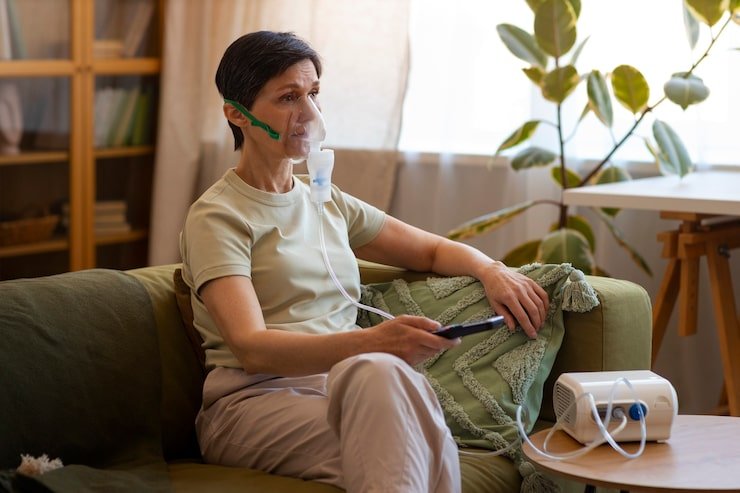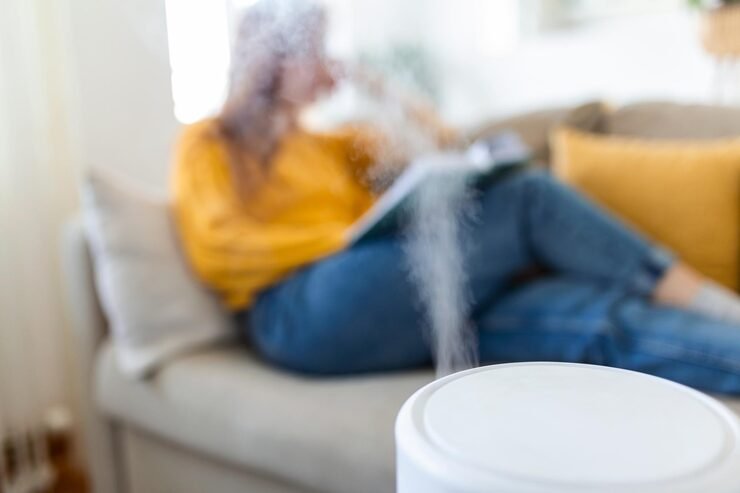Air Quality Testing Explained: What Homeowners Should Expect
- admin323029
- Blog

Air Quality Testing is one of the most effective ways to protect your family from hidden indoor risks. Pollutants build up in homes without warning. Many Massachusetts residents live in older houses or spend long winters indoors, which makes indoor air even more critical. Knowing what to expect from testing helps you prepare and take action.
What Is Air Quality Testing?
Air Quality Testing is a process used to measure pollutants and allergens in your home. Professionals use specialized equipment to detect mold spores, volatile organic compounds (VOCs), radon, and other harmful substances. Results reveal whether your air is safe or needs improvement. Without testing, these pollutants remain invisible while still affecting your health. Massachusetts homes are especially vulnerable due to basements, moisture, and seasonal heating.
Why Homeowners Benefit from Air Quality Testing
Poor air quality leads to coughing, headaches, fatigue, and asthma flare-ups. Children and seniors face higher risks. Testing allows you to connect symptoms to indoor conditions. It also prevents problems from growing into costly repairs. For example, identifying mold early reduces damage to walls and insulation. Air Quality Testing gives you data you can trust and a plan to improve your home environment.
The Air Quality Testing Process
Professional testing follows a clear sequence:
-
A visual inspection of the property to spot moisture, leaks, or poor ventilation.
-
Placement of air sampling devices in key rooms.
-
Measurement of VOCs, humidity, and particulate matter with specialized instruments.
-
Collection of samples sent to certified laboratories for analysis.
-
Delivery of a written report that explains findings in plain language.
Most visits last a few hours, with lab results available in several days. For Massachusetts homeowners, reports often include recommendations specific to local conditions such as radon or damp basements.
What Air Quality Testing Covers
Testing often includes:
-
Mold spores: Common in damp basements or areas with water damage.
-
Radon gas: A natural radioactive gas found in Massachusetts soil that enters through cracks.
-
VOCs: Emitted from paint, furniture, and cleaning supplies.
-
Allergens: Dust mites, pollen, and pet dander.
-
Carbon monoxide: From furnaces or gas appliances.
This range of testing ensures you know exactly what you are breathing inside your home.
How Results Are Reported
After analysis, you receive a report with detailed data. Good inspectors explain the results clearly, without technical confusion. Levels of pollutants are compared to safety guidelines from organizations like the Environmental Protection Agency. This allows you to see where action is needed. For Massachusetts residents, radon levels above the recommended limit of 4 pCi/L often require mitigation systems.
Costs and Value of Air Quality Testing
Pricing varies based on the size of your home and the scope of testing. While there is an upfront cost, the value is clear. Identifying pollutants early saves money on medical bills and property repairs. If you are buying or selling a home in Massachusetts, an air quality report adds confidence to the process. Buyers see it as proof that the property is safe.
What to Do After Air Quality Testing
Once results are available, you can take practical steps:
-
Use dehumidifiers to reduce moisture.
-
Improve ventilation in kitchens, bathrooms, and basements.
-
Replace HVAC filters every two to three months.
-
Choose low-VOC paints and household products.
-
Hire specialists for mold remediation or radon mitigation if required.
Your inspector will guide you through the most important steps based on your report.
Air Quality Testing and Massachusetts Homes
Massachusetts homes face unique challenges. Long winters keep windows shut, which traps pollutants indoors. Older housing stock often contains asbestos, lead, or outdated ventilation. Many basements are prone to leaks that encourage mold growth. Air Quality Testing addresses these issues and provides peace of mind. Local inspectors understand these risks and tailor recommendations to your situation.
Trusted Resources for Homeowners
For more information, review the Environmental Protection Agency’s page on Indoor Air Quality. Massachusetts residents can also find radon and mold guidance at Mass.gov. These resources offer clear, practical information to support your decisions.
Take the Next Step
Your home should be a safe space, not a source of hidden health risks. Air Quality Testing gives you accurate data and actionable solutions. For Massachusetts homeowners, it is a smart step toward healthier living and stronger property value. Schedule your professional inspection today and take control of the air you breathe.
FAQs about Air Quality Testing
1. What does Air Quality Testing measure in a home?
Air Quality Testing measures mold, VOCs, allergens, radon, and carbon monoxide. These pollutants affect health and are often invisible without testing.
2. How long does Air Quality Testing take in Massachusetts homes?
Most inspections take a few hours, with lab results ready in several days. The timeline ensures accuracy and clear reporting.
3. How often should homeowners schedule Air Quality Testing?
Testing every 2 to 3 years is recommended. In Massachusetts, frequent testing is smart for homes with basements, older materials, or after renovations.
4. Is Air Quality Testing important for new homes?
Yes. New homes often release VOCs from fresh paint, carpets, and furniture. Testing helps ensure safe conditions from the start.
5. What happens if Air Quality Testing finds unsafe levels?
You receive a detailed report with recommended actions. These may include mold removal, ventilation upgrades, or radon mitigation systems. A professional guides you through each step.
Are you worried about the cleanliness of your space?
Let us help you! Cleaning services are our specialty, and we offer a complete range of cleaning and maintenance services. Get a free estimate!


